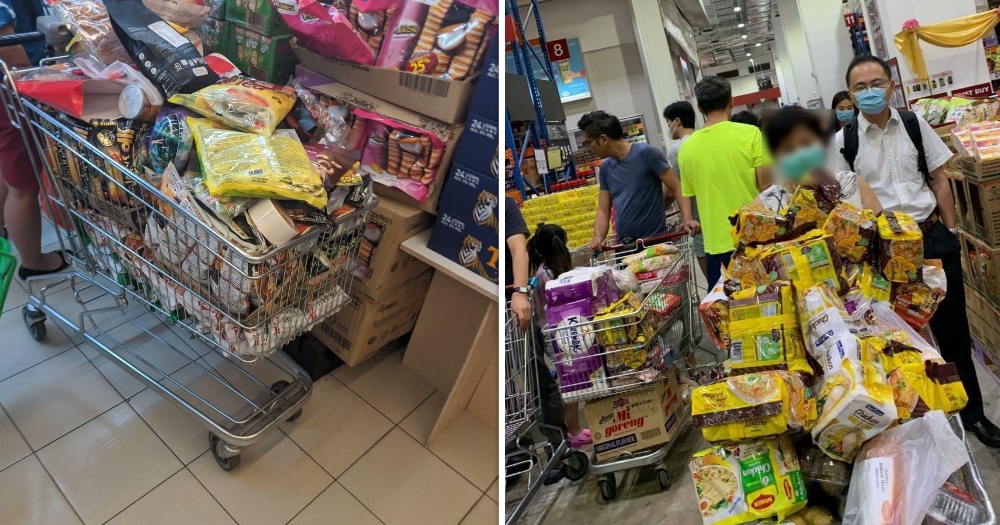Panic buying has set in.
And following the buying frenzy, there have been plenty of photos showing empty shelves all over Singapore.
Relevant personnel have also come out to placate the anxious by reassuring members of the public that there is really no need for stockpiling.
Here's a look at the empty shelves in bustling supermarkets all over Singapore.
Given these images, you might be forgiven for thinking a war had just taken place.
But it isn't a battle between the buyer and the virus, or the buyer and any potential mutation of the virus that might occur later on.
This appears to be a battle between the buyer and the buyer's neighbours, or the buyer and anyone who might get that last instant noodle packet before the buyer does.
So here's a question for those who clawed so hard for that last packet of Pocari Sweat.
Why?
As in, not literally 'why', since there have been scientific studies to explain these phenomenon.
Here's a really good post by the Singapore Psychological Society explaining why people are reacting this way.
Basically, when people witness an emergency situation, their brains react in a certain way.In this case, people are "hyper-focusing" on the virus, resulting in a flight or fight response prompting panic and groupthink behaviour.
What happens is that supermarket shelves are being cleared out, tensions are at an all-time high, and certain groups of people are experiencing discrimination.
But, what are you doing? What kind of crisis do you think you are preparing for that 15 packets of noodles will solve?
What do y'all think is the cure to the coronavirus? Sodium?
Also, why are you buying 20 bottles of water? Do you really think that the water supply might be cut off?
Sure, water is a precious resource, but I'm personally not sure that those bottles of water will prove to be the difference between surviving the mayhem and dying of dehydration.
But what do I know? Maybe you all are right. Maybe this is the way to go.
I've heard justifications on group chats, and from friends, about how this behaviour is merely to ensure survival. The survival of the fittest. First-mover advantage.
But what exactly are you "first-moving" towards? What is the end goal of this self-inflicted survival game? To see who is the most paranoid?
Well congratulations, you won.
You showed those idiots who didn't overreact. Those people who just went about their day and tried to get a roll of toilet paper, or a carton of eggs, but were forced to abandon their daily grocery run because of all you super geniuses in the queues with heaps of really necessary items such as fresh vegetables, ketchup bottles, and instant noodle packets.
The conversations with perplexed family members on the 25th day of an all-kailan diet might be the only misstep in these incredibly well laid out plans.
And for those who did end up successfully preparing for an apocalypse that will not come, maybe you are feeling real smug about your ingenuity. Perhaps you might even jokingly compare your collection of stashed goods to offerings from a minimart.
But at the core of it, there is nothing inherently clever or nimble about what you're doing. There is nothing novel about panicking, and then immediately giving in to that panic -- that's the basest of instincts.
But those who chose not to stack up a mountain of groceries didn't do that because they didn't panic. They chose to refrain from those actions in spite of their panic.
Times of crises can trigger the worst in people, but it can also encourage behaviour that benefits others. Like looking out for people around us, sharing resources, and generally being an overall less sh*tty person.
There are of course positives to look out for, even in the panic, there were no reports of fights, or even line cutting. It was in some ways the most organised mass hysteria one could possibly ask for.
Kudos.
Maybe we can try to do better in the coming days.
If you like what you read, follow us on Facebook, Instagram, Twitter and Telegram to get the latest updates.


